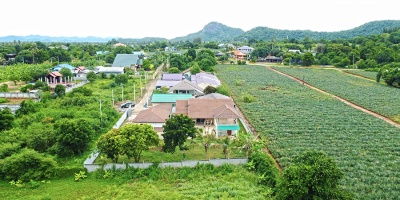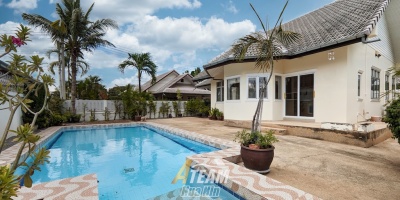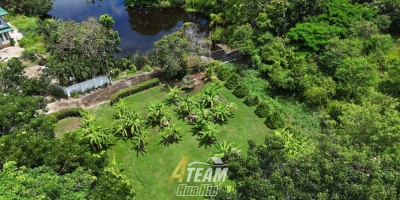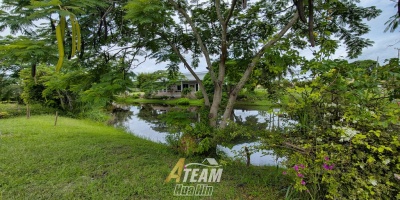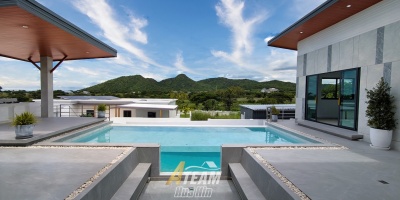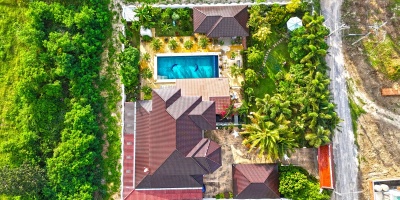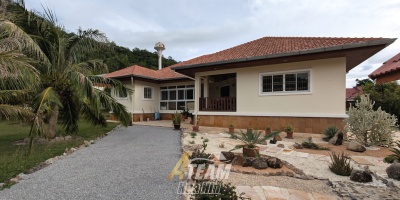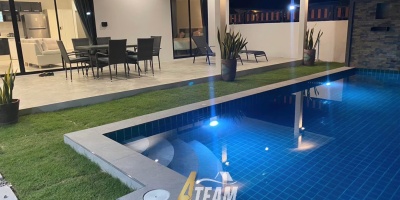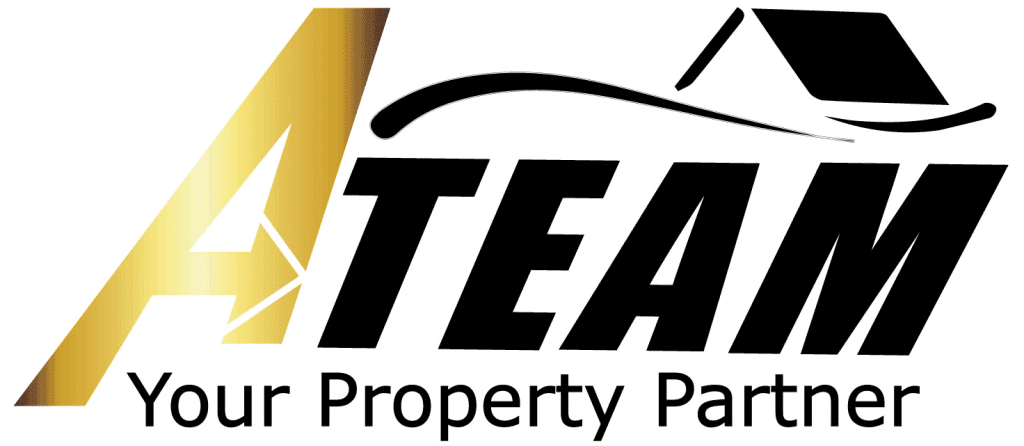
Thinking of relocating to Hua Hin, Thailand? You’ve got excellent taste. This sunny coastal town is a favorite among expats for its relaxed lifestyle, great food, golf courses, beachside charm—and far more affordable living than many Western countries.
But before you dive headfirst into villa hunting or swipe right on a beachfront condo, it helps to understand how renting works in Thailand, and more importantly, how to navigate the process smartly in Hua Hin.
In this guide, we break down everything you need to know: condos vs. houses, prices, neighborhoods, timing, contracts, agents—and how to avoid common (and costly) mistakes.
How Renting Works in Thailand (It’s Easier Than You Think)
Unlike in many Western countries, renting in Thailand is refreshingly straightforward. There’s no need for stacks of paperwork, months-long background checks, or a blood sample. Most rentals require just a passport, a signed contract, and a deposit (usually two months).
The process moves fast. You see a place, you like it, you sign. Sometimes same day. Don’t blink.
In Hua Hin, this simplicity pairs beautifully with a booming expat scene. Whether you’re here to retire, work remotely, or simply enjoy the good life, Hua Hin has become a rental hotspot with options for every taste and budget. From beachfront condos to lush private villas, the choices are endless.
Condo vs. House: What’s Best for You?
Choosing between a condo and a house in Hua Hin is a bit like choosing between a motorbike and a golf cart—both get you where you need to go, but the experience is totally different.
Condos are perfect for those who value convenience, low maintenance, and want to be close to the action without needing a car. If you’d rather not drive in Thailand, then a centrally located condo can be a great choice. Many are walking distance to the beach, restaurants, and shops—and when your legs get tired, Grab and Bolt ride-hailing apps are widely available and inexpensive.
Condos typically come with perks like 24/7 security, pools, gyms, and sometimes even saunas and rooftop lounges. However, once you start looking for larger condos, especially near the beach, prices can skyrocket. In many cases, you’ll have to choose between modernity and size—a sleek new 1-bedroom condo can cost as much as an older, more spacious 2-bedroom unit in a less central location.
Houses are all about space, privacy, and freedom. Want your own pool, a BBQ terrace, and room for the dog to run? Go for a villa. Houses are often located a bit outside the town center, which means you’ll likely need a car or scooter. But in exchange, you get bigger bang for your baht—a 3-bedroom house with a pool and garden can sometimes cost less than a small beachfront condo.
Pricing: What to Expect
Rental prices in Hua Hin can vary greatly depending on location, size, property type, and season. Here’s a rough breakdown:
– Studios & 1-bedroom condos near the beach: THB 15,000–30,000/month
– 2-bedroom condos in central areas: THB 25,000–50,000/month
– 3-bedroom houses with pool (outside the center): THB 30,000–60,000/month
– Luxury villas or beachfront properties: THB 70,000 and up
During high season, prices for short-term rentals can increase by 20–40%. Long-term contracts (6–12 months) usually offer better rates. Utilities are typically not included, so be sure to clarify that when comparing listings.
Location, Location… and Finding Your Fit
Hua Hin may be a laid-back town, but choosing the right area can make a big difference in your day-to-day life. Each neighborhood has its own vibe, charm, and rhythm—so it’s worth thinking about what suits your lifestyle best.
– Hua Hin Center: Bustling and walkable, with easy access to the night market, beach, and public transport.
– Soi 94 & Soi 88: Popular with expats, filled with cafés, bars, and restaurants.
– Soi 112: A growing residential hub with modern developments and easy access to town.
– Hin Lek Fai: Scenic and peaceful, ideal for those who want more space and quiet.
– Thap Tai: A suburban favorite for value properties with large plots.
– Khao Tao & Pranburi: Coastal and scenic, perfect for nature lovers.
Note: While Hua Hin is a seaside town, true sea views are surprisingly rare and usually come with a premium price tag. Most are found in high-floor condos or luxury hillside properties.
Realtors: Dos, Don’ts, and Doing It with A-Team Hua Hin
Finding the perfect property in a foreign country can feel a bit like dating. You want someone honest, professional, and responsive… not someone who ghosts you.
Always work with a legitimate agency with a physical office. Freelancers and private individuals may seem convenient, but they can disappear overnight.
Golden rules:
– Never send money without a proper contract.
– Always confirm legitimacy—ask for a company reference, ID, or passport.
– Use someone traceable, ideally with an office, website, and reputation.
At A-Team Hua Hin, we’re transparent, responsive, and always here when you need us—not just until the ink is dry.
The Rental Contract: Your Safety Net in Writing
Your rental contract is the single most important document in the entire process—treat it like your parachute. If something goes wrong, it’s the written agreement that protects you. In Thailand, verbal agreements or “understandings” don’t hold much weight. If it’s not in the contract, it might as well not exist.
Too often, tenants run into issues because the contract was overly simplistic or vague. Freelancers or unqualified agents may use generic templates that don’t clarify essential terms like:
- Who is responsible for routine and emergency repairs
- What happens in case of early termination
- Whether the landlord will provide TM30 documentation (required for foreigners)
- How utilities and services (internet, water delivery, pest control) are billed and paid
- What’s included in the rent (e.g., pool/garden service, Wi-Fi, Netflix—yes, it happens)
- Whether the tenant is allowed to sublet or host guests
These oversights might seem small at first—but they can cause real headaches later, especially when you’re trying to get your deposit back or need something urgent fixed.
🔍 What to Look for in a Solid Thai Rental Contract
A good rental contract should include the following:
- Full names, ID/passport numbers, and addresses of both parties
- Start and end dates of the lease
- Rental amount, due date, and acceptable payment methods
- Deposit amount and the conditions for refund
- Responsibilities for repairs, maintenance, and utility bills
- Inventory list (furniture, appliances, etc.)
- House rules (pets, noise, smoking, etc.)
- Clear terms for termination and renewal
- Agreement on TM30/immigration support if applicable
If you’re a foreigner renting in Thailand, you also need certain documents from the landlord to register your address for immigration (TM30). Without these, your visa extensions could be affected—so make sure that’s discussed and agreed upon upfront.
At A-Team Hua Hin, we ensure every contract is complete, clear, and tailored to local laws—with full explanations provided.
Timing: When to Rent and Why It Matters
If you’re looking for a long-term rental, the best time to search is during the low season (April to October). Availability is higher, and prices are more flexible.
Short-term rentals in high season (November to March) are much harder to secure. Owners prioritize long-term tenants, and most won’t commit far in advance. For this reason, we usually don’t accept bookings more than 2–3 months ahead.
If you need a short-term rental during high season and want to book early, Airbnb or Booking.com may be your best option.
What If Something Goes Wrong? (Spoiler: It Might)
Let’s be honest: even in paradise, things break. The AC stops cooling during a heatwave, the washing machine throws a tantrum mid-cycle, the Wi-Fi disappears right before your Zoom call—or worse, the neighbor’s water tank starts leaking into your bedroom.
When issues arise, it’s not just about what broke it’s about how fast and effectively it’s fixed.
Here are some Common Problems Tenants face:
- Air-conditioning units not working properly (usually due to clogged filters or gas leaks)
- Water supply issues from local outages or pump failures
- Wi-Fi/internet breakdowns.
- Appliance malfunctions (e.g., refrigerators, microwaves, washing machines)
- Drainage or plumbing blockages.
- Insect or pest problems, especially if pest control isn’t done regularly
These problems are rarely a deal-breaker—but they can be very frustrating if you’re left to deal with them alone.
A responsive agent will:
- Coordinate with the landlord or property manager to get approval and arrange repairs
- Call and schedule trusted, local technicians—we know who’s reliable and who’s not
- Translate and communicate if the landlord or technician doesn’t speak your language
- Follow up until the issue is resolved—not just “pass the message”
- Advise you on what’s normal wear-and-tear vs. what might be deducted from your deposit
Some agents disappear the moment you sign the contract. At A-Team Hua Hin, we stay involved for the duration of your stay—you’re not alone when the Wi-Fi goes out or the pool pump fails.
Conclusion: Make Your Move, the Smart Way
Renting a property in Hua Hin can be a smooth and enjoyable experience—but only if you approach it with the right information, the right mindset, and the right support.
Take time to understand your needs: Do you need space and privacy, or convenience and walkability? Are you staying long-term or just escaping the winter? Knowing your priorities helps narrow down your choices quickly.
Next, be diligent about paperwork. Thailand may be relaxed in many ways, but when it comes to legal and financial matters, having a clear, well-drafted contract is non-negotiable. It protects you—and the landlord—when the unexpected happens.
Also, be realistic about the rental seasons and negotiation opportunities. Timing your search wisely and knowing what’s negotiable (and what’s not) can save you both stress and money.
Finally, whether you use a professional agency or go the DIY route, make sure you’re dealing with someone reputable, responsive, and experienced in the local market. A good rental experience doesn’t end at handing over the keys—it continues throughout your stay.
With the right preparation and a bit of local insight, you can find a place that’s not just a rental, but a comfortable, secure, and happy home base in one of Thailand’s most charming coastal towns.
Featured Properties
